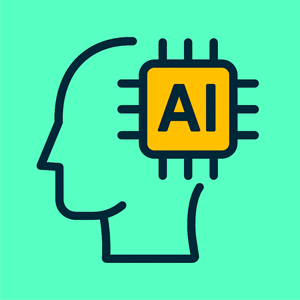 What used to be a niche skill is now becoming table stakes. As generative AI tools like ChatGPT, Claude, and Gemini move from novelty to necessity in the workplace, companies are finding themselves in a new kind of talent war-not just for marketers, salespeople, and support agents, but for AI-fluent versions of those roles. And increasingly, the most in-demand title you’ve never hired for is the Prompt Engineer.
What used to be a niche skill is now becoming table stakes. As generative AI tools like ChatGPT, Claude, and Gemini move from novelty to necessity in the workplace, companies are finding themselves in a new kind of talent war-not just for marketers, salespeople, and support agents, but for AI-fluent versions of those roles. And increasingly, the most in-demand title you’ve never hired for is the Prompt Engineer.
For HR and talent acquisition teams, this represents a fundamental shift. It’s not just about screening resumes for traditional job qualifications anymore-it’s about identifying people who can speak the new language of work: AI fluency.
AI Fluency: The New Literacy in B2B Workplaces
Prompt engineering isn’t just for developers. In modern B2B environments, it’s becoming the skill that separates high performers from everyone else. Whether it’s writing effective customer replies with AI tools, generating content faster, or using AI copilots in CRMs, professionals in marketing, sales, and customer support are expected to work smarter with AI.
Here’s what that looks like in action:
-
Marketing teams are hiring content strategists who can orchestrate multi-touch campaigns with AI assistance, not just by hand.
-
Sales reps are learning to craft prompt templates that generate custom follow-up emails or product summaries after calls.
-
Support agents are using AI to summarize tickets, generate knowledge base answers, and personalize responses at scale.
Each of these tasks demands more than basic tool use. It requires fluency-knowing how to instruct an AI to get the result you want.
Why B2B Companies Are Hiring ‘AI-Native’ Talent
The rise of AI-native roles isn’t about replacing human workers, it’s about amplifying them. Employers are discovering that:
-
AI-savvy employees are more productive. They know how to delegate repetitive tasks to AI, freeing up time for strategy and relationship-building.
-
They innovate faster. These workers understand what AI is capable of and push boundaries, often surfacing new use cases leadership hadn’t considered.
-
They reduce operational friction. From faster onboarding to quicker task turnarounds, AI-fluent talent accelerates business processes.
Roles like “Prompt Engineer,” “AI Solutions Specialist,” and “GenAI Strategist” are now appearing on job boards. But even when the job title isn’t explicitly AI-focused, the expectation is embedded in the role.
What HR Teams Need to Do Differently
As hiring managers and recruiters adapt to this trend, here are a few ways to screen and source for AI-fluent candidates:
-
Ask for AI experience-even informally. Many candidates won’t have formal prompt engineering titles, but they may have built AI-based workflows or used GPT tools to automate parts of their job. Ask open-ended questions like, “Tell me about a time you used AI to improve your productivity.”
-
Incorporate prompt tests into interviews. Give candidates a task like summarizing a product brief using ChatGPT or designing a simple AI-driven workflow. You’re assessing both creativity and clarity in communication with AI.
-
Look beyond degrees-look for portfolios. Some of the most capable prompt engineers are self-taught. Look for GitHub projects, blog posts, or examples of prompt chains they’ve built and refined.
-
Update your job descriptions. Make it clear that comfort with AI tools is not a bonus-it’s a requirement. Use language like “AI-first mindset” or “experience with generative AI platforms” as core qualifications.
Conclusion: The Future Belongs to AI-First Teams
In a competitive B2B landscape, the edge won’t go to the biggest teams-it’ll go to the smartest, fastest ones. And increasingly, that means teams that know how to collaborate with AI. Whether you’re hiring for marketing, sales, or customer support, AI fluency isn’t a niche anymore-it’s the new standard.
So yes, your next hire might be a prompt engineer. But more importantly, your entire hiring strategy needs to reflect a world where AI-native talent drives business success.
